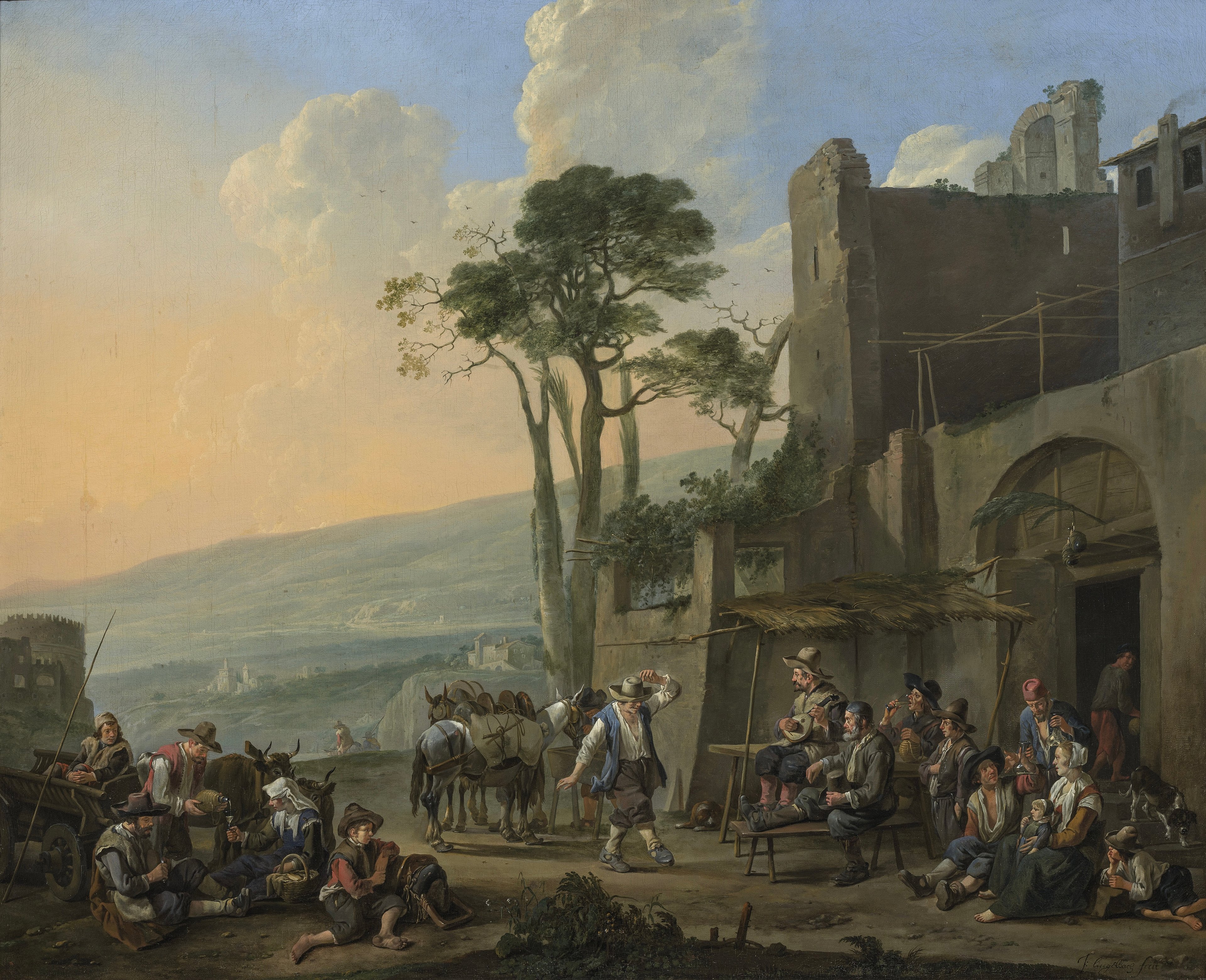
Muleteers rest in the evening in front of an inn in the Roman Campagna. A dance provides entertainment, the mausoleum of Caecilia Metella marks the spot. The picture shows idyllic Italian everyday life, idealized by artists such as Lingelbach.
Rest in the Campagna
A motley group of peasants has settled down in front of a tavern: A band of muleteers takes a rest because the day is already drawing to a close. At the heart of the action is one of the muleteers, who finds an attentive audience among his peers by performing an impromptu solo dance. The tribulations of the journey seem to be forgotten, drinks are served, there is an atmosphere of relaxed peacefulness.
Behind them we see a wide plain lined with hills: the setting sun slowly bathes it in a mild evening light. The architecture of the properties scattered on the plain and the tavern in the foreground indicate that the scene is set in Italy, the land of longing par excellence. More precisely, we are in the immediate vicinity of Rome, the Campagna. To fittingly underscore his local knowledge, the painter has blended the mausoleum of Caecilia Metella, one of the most famous ancient monuments outside the Eternal City, into the scene. With its massive cylindrical shape and distinctive battlement which was only added in the Middle Ages, it is one of the most prominent sights on the famous, tomb-lined Via Appia Antica and the subject of repeated depictions.
The Italian milieu in general and Rome as a setting of world history in particular exerted an unbroken attraction on entire generations of European artists, not least on the Dutch such as Lingelbach, who was born in Frankfurt am Main, worked in Amsterdam and spent some time in Rome. Here, scenes from the everyday life of the lower classes aroused the special interest of painters. Of course, they only reflected the mainly harsh conditions under which the poor had to lead their lives to a modest degree. Under the southern sun, even social misery and the daily fight for survival appeared in a literally mild light, if depicted at all.
Text: Ulrich Becker